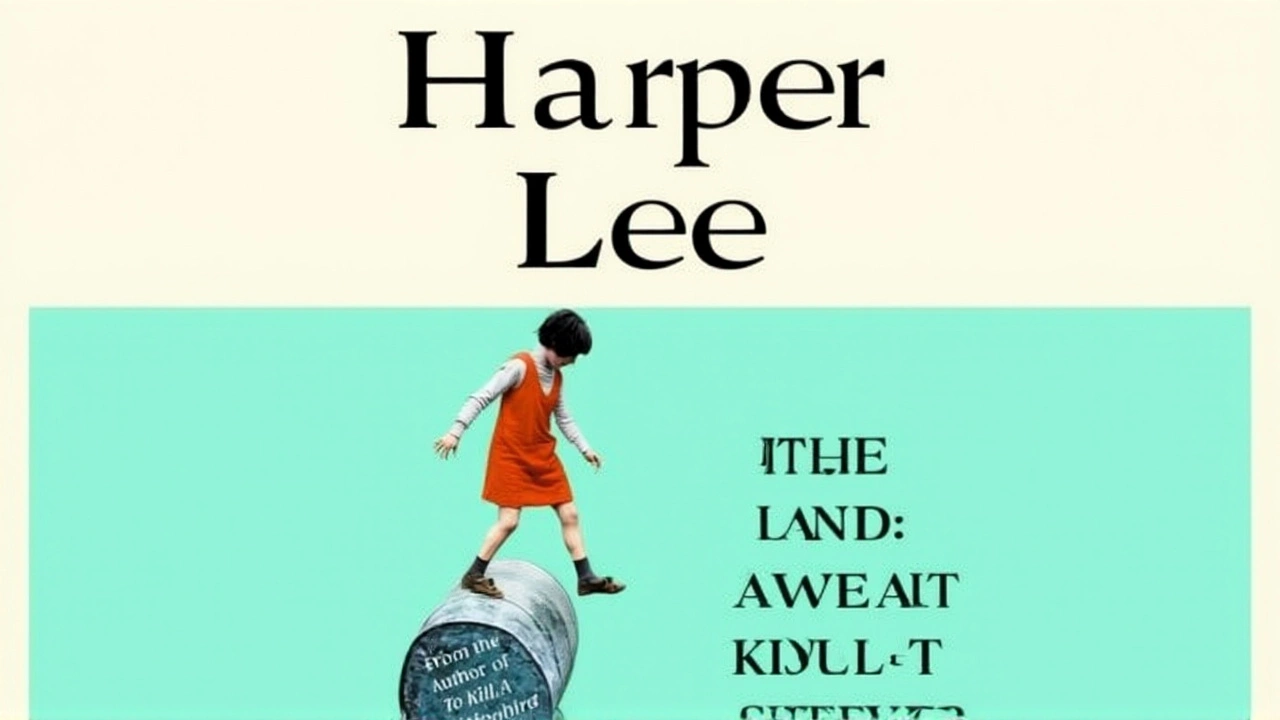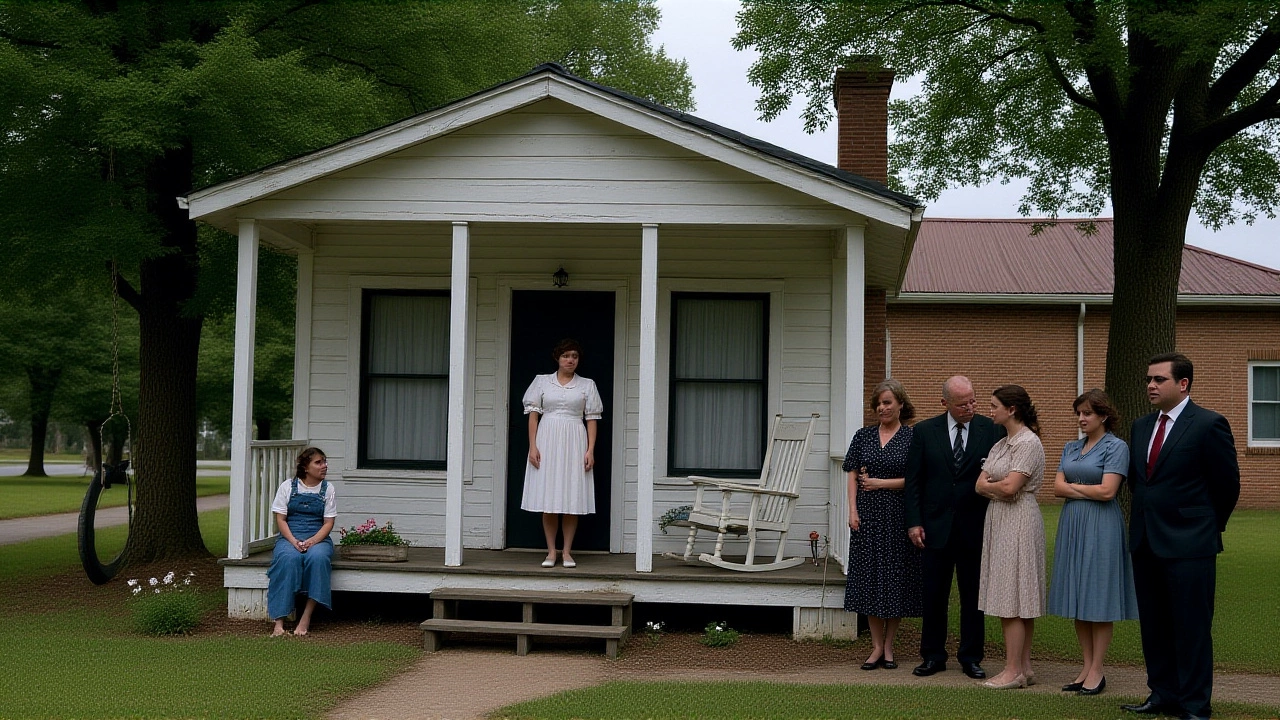When Harper Lee, author of To Kill a Mockingbird was born on April 28, 1926, she entered a small town that would later claim the title of the Literary Capital of Alabama. Monroeville, nestled between Mobile and Montgomery, has been officially billed as that capital since a 1997 proclamation by the state’s cultural commission.
Monroeville's Literary Roots
The town’s claim isn’t just a marketing gimmick; it’s rooted in the lives of two of America’s most celebrated writers. Truman Capote grew up a few doors down from Lee, and the two childhood friends shared a backyard of Southern gossip that later surfaced in their novels. Capote’s memoir Breakfast at Tiffany’s and Lee’s To Kill a Mockingbird both echo the cadence of the town’s church bells and the dusty heat of its summer evenings.
Local historians point out that the friendship forged in Monroeville’s modest schools and storefront libraries shaped the moral compass of both writers. As one long‑time resident recalled, “They’d sit on the porch, swap stories, and argue about whether Atticus Finch could ever exist in real life.” That argument, of course, became reality for the town’s downtown courtroom.
The Courthouse That Became Maycomb
The Monroe County Courthouse with its grand dome and towering columns inspired the fictional setting of Maycomb, Alabama. When the 1962 film adaptation needed a real‑world stand‑in, the production crew walked its hallways, noting the echo of footsteps on marble that would later become a symbol of justice on screen.
Inside the courthouse, visitors can find the Old Courthouse Museum, where a pamphlet titled “Monroeville, The Search for Harper Lee’s Maycomb” maps the novel’s key scenes onto the building’s actual rooms. An Atticus Finch monument now watches over the entrance, and each May the town stages a month‑long, free outdoor production of the novel in the courthouse square.
Sculpture Trail and Public Art
In 2016, on what would have been Lee’s 90th birthday, the town unveiled a bronze sculpture of three children reading beneath an open book. The piece, created by Hannah Lincoln, a senior at the University of Alabama, winds its way along the new Literary Capital Sculpture Trail. The trail now links the courthouse, the former site of Lee’s childhood home, and the Hillcrest Cemetery where Lee rests.
Fans often leave pennies on Lee’s headstone—a quiet, shimmering tribute that began after the 2007 Presidential Medal of Freedom ceremony, when the nation collectively paused to remember the author’s quiet power.

Annual Celebrations and Visitor Impact
Monroeville draws roughly 30,000 literary tourists each year, a number that surprises many given the town’s population of just under 10,000. The Monroe County Chamber of Commerce declared 2016 “The Year of Harper Lee,” noting a spike in visitors after the release of Go Set a Watchman in 2015.
- Average visitor spend: $85 per day (food, lodging, memorabilia).
- Economic boost: $2.5 million annually for local businesses.
- Top attractions: Courthouse production, Sculpture Trail, Alabama Writers Hall of Fame.
Each May, the town hosts a writer’s festival featuring workshops, panel discussions, and readings from emerging Southern voices. The event is anchored by the Alabama Writers Hall of Fame, housed at the Coastal Alabama Community College’s Monroeville branch. Inductees include not only Lee and Capote but also Pulitzer winner Cynthia Tucker and novelist Mark Childress.
Preserving the Legacy
Preservation efforts have been a community effort for decades. Though Lee’s childhood house on South Alabama Avenue was demolished in the 1970s, a historic marker now tells visitors where the author’s early imagination was sparked. Likewise, the town’s historic district received a federal grant in 2021 to restore the original storefronts that appear in the novel’s opening chapters.
University of Alabama scholars continue to study Lee’s drafts, and in 2022 the university established the Harper Lee Legal Fiction Prize, awarding $10,000 annually to authors who blend law and literature in the spirit of Finch’s courtroom wisdom.
All these pieces—courthouse, sculpture, festival—keep Monroeville humming like a living footnote to a classic. As a local professor put it, “Monroeville isn’t just a setting; it’s a character in its own right, and every visitor helps write the next chapter.”

Key Facts
- Designated “Literary Capital of Alabama” in 1997.
- Home to Harper Lee (born 1926) and Truman Capote (born 1924).
- Monroe County Courthouse inspired the fictional Maycomb.
- Annual free production of To Kill a Mockingbird draws thousands.
- Literary Capital Sculpture Trail completed in 2019.
Frequently Asked Questions
How does Monroeville’s literary status affect local businesses?
The influx of 30,000 visitors each year translates into roughly $2.5 million in sales for hotels, diners, and souvenir shops. Seasonal events like the Maycourt production often sell out, prompting new cafés to open near the courthouse square.
What ties does Truman Capote have to the town today?
Capote’s childhood home no longer stands, but his name appears on a bronze plaque at the Writers Hall of Fame. The annual festival frequently features panels on Capote’s influence on Southern storytelling.
When can visitors see the sculpture trail?
The bronze statues are on permanent display year‑round. Guided tours are offered every Saturday morning from 10 a.m. to 12 p.m., and a self‑guided map is available at the courthouse information desk.
Why is the Atticus Finch monument controversial?
While many see the statue as a tribute to moral courage, some critics argue that celebrating a fictional lawyer sidesteps the real‑world civil‑rights struggles of the era. The town hosts a yearly forum to discuss the monument’s place in contemporary dialogue.
What future projects are planned for the literary district?
Plans unveiled in 2023 include a digital archive of Lee’s manuscripts, a renovated historic theater for live readings, and a scholarship fund for Southern writers supported by the Alabama Writers Hall of Fame.
